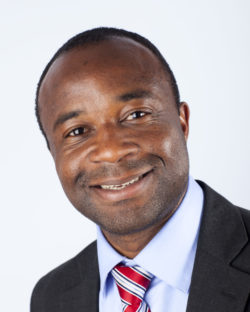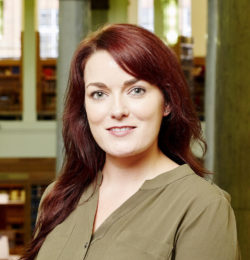Academic partnership to support Climate Plan delivery

Colleagues at the University of Leeds are embarking on a sector-leading review initiative as part of its ambition to achieve net zero by 2030.
A group of experts, including an external advisor, will undertake a progress review of the Climate Plan, one year on from its publication.
The Priestley International Centre for Climate has been asked by the Climate Principles Programme Board, which has overall accountability for delivery of the Climate Plan, to coordinate the review process.
The Research Partnership Committee will produce an annual report for the Programme Board to consider and provide expert advice throughout the year to the delivery working groups for each of the Climate Principles.
The process will ensure that the Climate Plan delivery stays true to its original aims, remains ambitious and takes advantage of the developments in social and technical solutions.
University of Leeds Climate Plan
In November 2021 the Climate Plan was approved by the University’s governing body, its Council.
The plan represents the single biggest investment we have ever made: £174 million over the next decade, more than £150 million of which will be put towards achieving our goal of net zero greenhouse gas emissions by 2030.
The Climate Plan is a collaborative effort across the University community, involving our academic staff, professional services and students.
Public consultation
The Climate Plan Research Partnership Committee is chaired by Professor Piers Forster, Director of the Priestley International Centre for Climate, who will also act as the science expert for the committee.
He said: “The Research Partnership Committee will run a public consultation to ensure that staff, students and the public can feed in evidence to the University of Leeds Climate Plan. This way our plan can be informed and guided by the world leading research that takes place across our institution.”
The public consultation will be open until Wednesday 9 November to gather input from the University community and beyond.
Responses will be analysed by the Research Partnership Committee as part of the first annual progress report review.
Read the full Climate Plan Annual Progress Report and find out how you can respond to the consultation.
Diverse expertise
Committee members have been selected across several key focus areas, including finance and investment, technology and innovation, behaviour change and just transitions, adaptation and resilience, and institutional decision-making.
Professor Forster said: “We are fortunate to have such a vast range of expertise to draw upon from across the University and am very much looking forward to working with this group of esteemed colleagues.”
The remaining committee members:

Dr Akintunde Babatunde, Associate Professor in the School of Civil Engineering, is a chartered engineer and chartered environmentalist with expertise in sustainable water engineering.
He said: “I am delighted to be on the University’s Climate Research Partnership committee to support the climate delivery programme. As an engineer, I am especially interested in the enabling technology and innovation that will enhance adaptation and resilience. I look forward to working with the committee; and with the entire University community towards changing together for the climate.”
 Dr Ruth Bookbinder, Postdoctoral Research Associate in Social Relations and Retrofit in the School of Earth and Environment, has previously conducted insightful research into the decision-making processes regarding the seven principles that the University committed to in 2019.
Dr Ruth Bookbinder, Postdoctoral Research Associate in Social Relations and Retrofit in the School of Earth and Environment, has previously conducted insightful research into the decision-making processes regarding the seven principles that the University committed to in 2019.
“I am looking forward to working with the committee and am interested in examining and reflecting on institutional norms that can enable but also restrict change,” she said.
 Professor Iain Clacher, Pro Dean International and Professor of Pensions and Finance in Leeds University Business School, is a lead researcher in the UK Centre for Greening Finance and Investment and will contribute expertise in international investment.
Professor Iain Clacher, Pro Dean International and Professor of Pensions and Finance in Leeds University Business School, is a lead researcher in the UK Centre for Greening Finance and Investment and will contribute expertise in international investment.
“I am thrilled to be part of the Climate Plan Research Partnership Committee,” he said. “The Climate Plan is rightly ambitious, and I am looking forward to working with colleagues from across the University to help make this ambition a reality, which will benefit all staff and students, now and in the future.”
Professor David Glew is Director of the Leeds Sustainability Institute and Head of Energy efficiency and policy at Leeds Beckett University.
 Professor Sarah Irwin, Professor of Sociology in the School of Sociology and Social Policy, has worked extensively in collaboration with important partners including students and local policymakers.
Professor Sarah Irwin, Professor of Sociology in the School of Sociology and Social Policy, has worked extensively in collaboration with important partners including students and local policymakers.
She said: “I am delighted to be on the Research Partnership Committee to help implement the University’s principles for rapid decarbonisation. As a social scientist I am especially interested in ensuring inclusivity and effective engagement, in the remarkable opportunities for learning through enacting change, and in the scope for leveraging transformational changes within and beyond the University.”
 Professor Chris Rayner, Professor of Organic Chemistry in the School of Chemistry, and Founder Director of C-Capture Ltd, brings considerable expertise in the commercial deployment of new technologies, and the associated opportunities and challenges.
Professor Chris Rayner, Professor of Organic Chemistry in the School of Chemistry, and Founder Director of C-Capture Ltd, brings considerable expertise in the commercial deployment of new technologies, and the associated opportunities and challenges.
He said; “I really want to understand how the current explosion of technology developments can help the University achieve its net zero goal, and how we can potentially help others. The nature of the technologies we adopt and the timing is going to be hugely important, and the University is in a unique position to really lead the way.”
 Dr Clare Richardson-Barlow, Lecturer, Asia-Pacific Studies, in the School of Languages, Cultures and Societies, focuses on justice in climate and energy transitions, both internationally and within the UK.
Dr Clare Richardson-Barlow, Lecturer, Asia-Pacific Studies, in the School of Languages, Cultures and Societies, focuses on justice in climate and energy transitions, both internationally and within the UK.
“I am very happy to be representing behaviour change and justice expertise on the committee,” she said. “I look forward to keeping justice considerations at the forefront of our work on the Climate Plan and I’m committed to holding the University and our research community expertise accountable to both larger climate targets and fairness in environmental and climate decision making.”
 Dr Karl Ropkins, Senior Research Fellow in the Institute for Transport Studies, is currently working on air quality and clean vehicle technology.
Dr Karl Ropkins, Senior Research Fellow in the Institute for Transport Studies, is currently working on air quality and clean vehicle technology.
He said: “I work on air quality and vehicle emissions questions on a daily basis, providing early evidence on the real-world impacts of in-coming ‘Clean’ and ‘Zero Emissions’ technologies, most often in collaboration with external partners, organisations and authorities. However, the need for effective local climate action is ever more acute, and I, as a researcher, like we at the University, as a research-led institution, should be making every effort to practice what we preach. So, for me, the opportunity to be part of the Climate Plan Research Partnership Committee and to actively contribute our own Climate Plan is a much appreciated chance to give-back and to work on the ultimate in-house project.”
